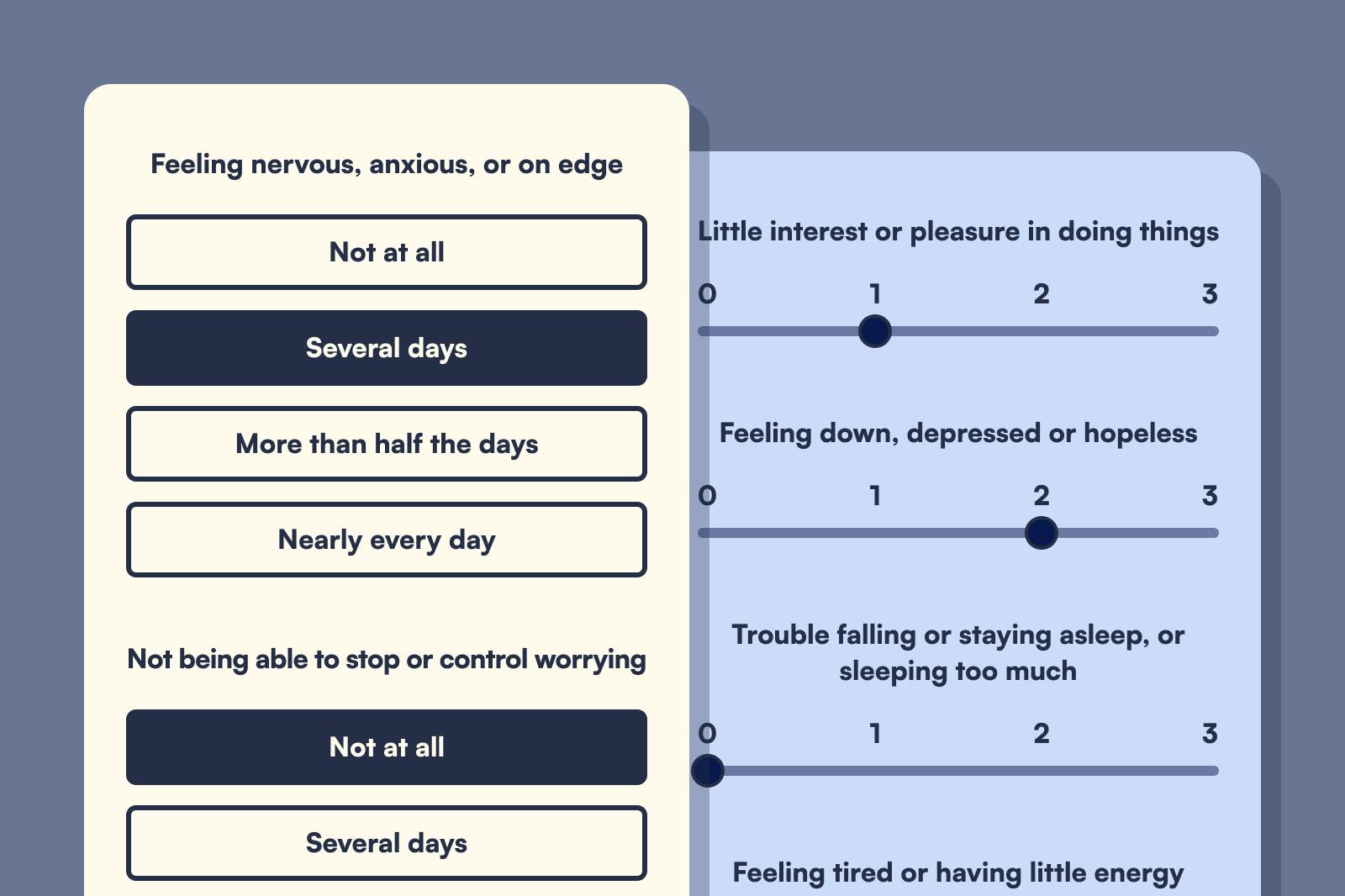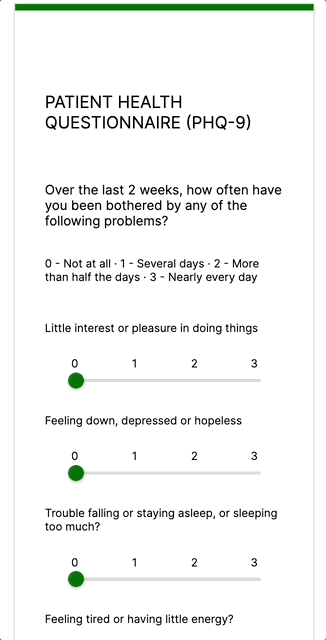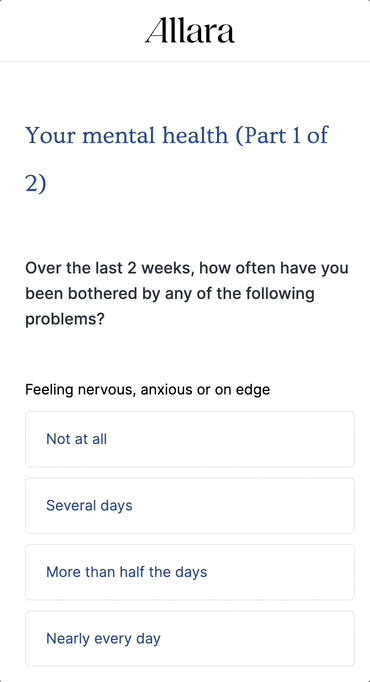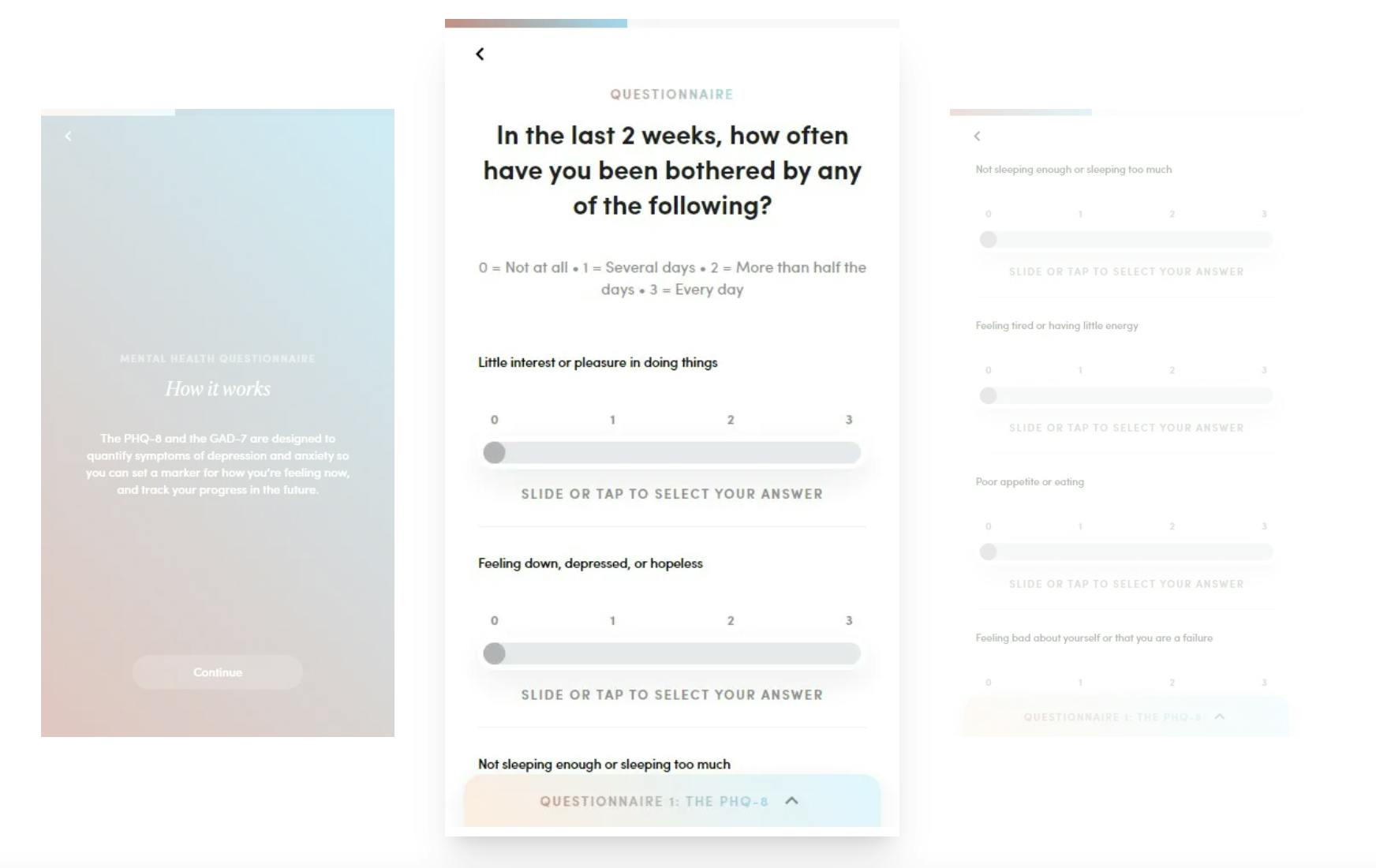Mental health assessment form templates

Streamline your patient services with these clinically validated templates.
The difference between good and great healthcare service can hinge on how you use technology to better serve your patients. Formsort's mental health assessment templates can make your practice more efficient and improve patient intake. The process cuts down on paperwork and ensures that sensitive patient information is handled in a secure and sensitive manner. With Formsort, you're not just adopting new software; you're elevating your practice to meet modern healthcare demands.
These mental health assessment templates can enable you to launch forms at the click of a button. PHQ-9, PHQ-4, and GAD-7 are just some of the templates we offer. These templates include clinically validated questions and scoring frameworks designed to screen for the presence of depressive and anxiety disorders.
Mental health assessment templates - patient intake process
Mental health disorders can be comorbid with other illnesses and can be aggravated by stressful or traumatic events. The COVID-19 pandemic was a perfect storm that led to spikes in depression and anxiety rates. According to the CDC, from August 2020 to February 2021 alone, the percentage of adults with recent symptoms of anxiety or a depressive disorder increased by 15%, from 36.4% to 41.5% (source). In order to keep up with the increased demand for mental healthcare services, practitioners need the right digital tools to efficiently analyze and track symptoms amongst patients.
Traditionally, these forms have been paper-and-pencil assessments filled out in busy waiting rooms, or answered face to face with a care provider. Both of these methods have their drawbacks: paper forms can be manually intensive to process, while face-to-face check-ins may suffer from reporting bias due to patients withholding information about their symptoms.
Digital mental health assessment forms like Formsort’s templates help ease the administrative burden of mental health assessments, and make it easier to monitor patients’ symptoms over time.
Mental health assessment templates that meet industry standards
The patient health questionnaire (PHQ) is a self-administered version of the Primary Care Evaluation of Mental Disorders (PRIME-MD) diagnostic instrument for common mental health illnesses originally developed in the 1990s. It incorporates DSM-IV depression criteria with other leading major depressive symptoms. The PHQ-9 is a 9-item questionnaire for depressive disorders, the PHQ-4 is a 4-item questionnaire for anxiety and depression, and the GAD-7 is a 7-item questionnaire for anxiety.
These mental health assessment templates are great to start with:
- Questions are standard throughout the medical industry, so a wide range of health care providers can use them.
- Building this mental health form from scratch can be tedious and time-consuming to do yourself. You'll need to configure the form design and build the complex calculation logic to score responders appropriately. A ready-to-use mental health assessment template includes questions, a design theme and calculation logic out of the box, saving you time and money.
- Since mental health assessment questions are standardized, your team can focus your time on customizing the style to ensure your form aligns with your brand’s design.
Simplifying the patient intake process
One of the first touchpoints in the patient journey is the intake process, and it's here that we can make a significant impact. We've seen practices transform this initial step from a time-consuming chore into a streamlined, welcoming experience for patients. Our mental health assessment templates are not just forms; they are a bridge connecting patients to the care they need faster and more accurately.
Read about our guide to therapy intake forms.
Enhancing data accuracy and security
Patient data security is non-negotiable. As healthcare providers, you have a duty to protect this information with the most effective tools at your disposal. Formsort's HIPAA compliant form builder is built with this priority in mind. By using our platform, you're not just complying with regulations; you're adopting a system that places patient confidentiality at its core.
Digital forms collect data more accurately than manual entries. By automating the intake process with our mental health assessment templates, you reduce the risk of human error. This ensures that the information guiding your care decisions is as precise as possible.
Streamlining operations and focusing on care
The administrative burden of manual patient intakes can be overwhelming, detracting from the time and energy healthcare professionals can devote to patient care. By integrating Formsort's digital assessment templates into your practice, you can significantly reduce this burden. Automate your administrative workflows with Formsort, from data collection to scoring and analysis. This will enable you to focus on what truly matters: providing exceptional care.
Here’s what one of our customers, Allara Health, has to say about our healthcare templates:
"Mental health screening forms can be time-consuming to build from scratch, so we asked the Formsort team to build some diagnostic tool templates for these disorders based on pre-existing, clinically validated assessments: the PHQ-9, PHQ-4, and GAD-7. The Formsort team shared a usable template of the patient health questionnaire (PHQ) in 1 day. Now, Allara can easily incorporate mental health screeners in patient touch points like monthly check-ins".
How do Formsort’s mental health assessment templates work?
Each of the mental health templates is designed as a 1-page questionnaire. Keeping it to 1 page makes it easy for responders to complete the form, but you can choose to break out the questions across multiple pages.
Each of the mental health assessment templates have 2 versions: one that displays answer choices with sliders, and one that displays answer choices with buttons. Teams can choose the style that best fits their desired user experience. In general we are seeing companies shift to buttons over sliders, but the sliders’ left to right motion is intuitive and in-line with the design of paper assessment forms. Below we share a preview of each style.
Slider

Buttons

By default, answer choices for each question are scored on a 0-3 scale, aligning with standard scoring mechanisms for PHQs and GAD-7. You can choose to customize the answer values, but we recommend sticking to the default so your results can be analyzed and compared to national statistics.
Once responders complete the mental health assessments, the template generates an assessment score in real-time based on their responses. The assessment score is a preset calculated variable that aggregates scores of individual questions into a composite score aligned to a clinically validated scoring framework. This score helps practitioners understand the severity of a patient’s symptoms over time.
Ready to explore Formsort's mental health assessment templates?
Formsort's HIPAA-compliant form builder and mental health assessment templates can help make healthcare more efficient, secure, and patient-centered.
Looking for more design inspiration?

Fineflows, our pattern library features live forms for the most common use cases, like mental health intake templates. You can use this free gallery as inspiration when designing your next form. Start building your next mental health assessment form here.